April 14, 2025 | 04:59 GMT +7
April 14, 2025 | 04:59 GMT +7
Hotline: 0913.378.918
April 14, 2025 | 04:59 GMT +7
Hotline: 0913.378.918
The Department of Agriculture and Rural Development of Tay Ninh Province, in collaboration with the Bau Don Durian Club and Duc Thanh Company, recently organized a conference on sustainable development of durian trees.
Attending the conference were Mr. Le Viet Binh, Deputy Chief of the Office of the Ministry of Agriculture and Rural Development, and Mr. Nguyen Dinh Xuan, Director of the Department of Agriculture and Rural Development of Tay Ninh Province, along with managers, experts, scientists, businesses, cooperatives, and durian farmers.
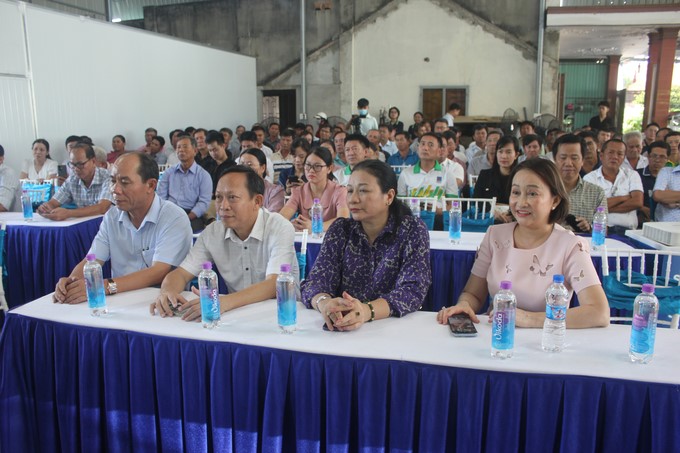
Delegates attending the conference. Photo: Tran Trung.
According to Ms. Pham Hong Hanh, Secretary of the Party Committee of Bau Don Commune (Go Dau district, Tay Ninh), the Bau Don Durian Club has 30 members with a total durian area of over 45 hectares. Currently, club members have been producing according to VietGAP standards while synchronously applying intensive technical measures, information technology, and advanced science and techniques to production.
The Club has two growing areas that have been granted codes and has products exported to the Chinese market through chain linkages with two businesses, including Export Fruit Processing Factory, a branch of Trinity Vietnam Co., Ltd., and Chanh Thu Fruit Import-Export Co., Ltd. In addition, the Club's durian products are also consumed in the domestic market.
In the durian crop year of 2023-2024, the majority of durian farmers in Bau Don commune, Tay Ninh province's durian capital, achieved high profits, and people were excited.
Thanks to the attention, support, and guidance of provincial and district specialized agencies, the Club's durian products have achieved 4-star OCOP and VietGAP certifications and have been granted a collective trademark.
"Although Bau Don durian has good productivity, quality, and consumption, in the long term, it is necessary to pay attention to investing in building, developing, and protecting the brand so that consumption is not just farmers coming to businesses and consumers, but more and more orders and businesses proactively coming to place orders because of the 'Bau Don Durian' brand," Ms. Pham Hong Hanh emphasized.
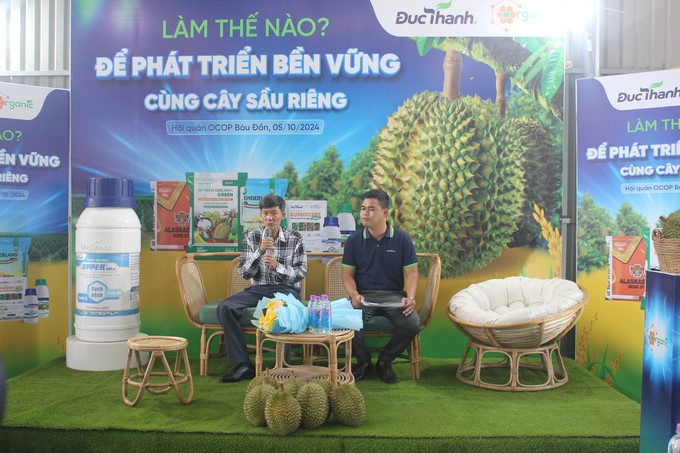
Mr. Dinh Van Chu (right) shared at the conference. Photo: Tran Trung.
At the conference, delegates heard Mr. Dinh Van Chu, a farmer with 33 years of experience growing durian and a durian billionaire in Tien Giang province, share about choosing varieties, managing soil and nutrients properly, and using pesticides safely and effectively. Especially, managing pests and natural enemies in a balanced way, aiming to develop organic and sustainable durian.
According to Mr. Chu, the development of organic durian is a trend to ensure durian products are not only of high quality but also eco-friendly and safe for the health of producers and consumers. To achieve this, it is necessary to comply with the principles of organic farming and manage the farm in a sustainable way.
"With the organic durian growing model, the rate of type A fruits, which can be exported and has the highest value, can reach 70–80%. Particularly, sustainable durian development will bring long-term benefits to farmers and society," Mr. Chu shared.
Ms. Le Thi Mai Huyen, General Director of Duc Thanh Co., Ltd., said that Tay Ninh has great potential to become a leading durian-growing region. However, to achieve the highest productivity and quality, it is extremely important to use microbial organic fertilizers and safe and eco-friendly pesticides.
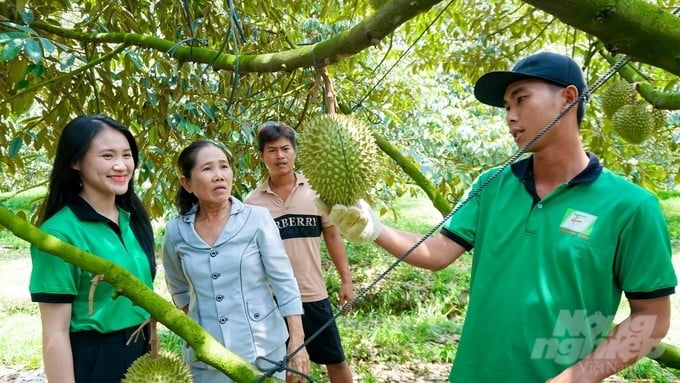
Tay Ninh durian has great potential for development. Photo: TT.
Ms. Huyen shared: As a local enterprise with over 35 years of producing fertilizers and pesticides and enthusiasm for sustainable agriculture, the company always wishes to contribute to the development of Tay Ninh agriculture, especially durian trees.
"The company is committed to providing high-quality products that not only help plants grow healthily but also ensure long-term protection of the soil and water environment. This is not only a business development strategy but also our responsibility to the community and the environment," Ms. Huyen emphasized.
At the conference, Mr. Ngo Van Chanh, Deputy General Director of Chanh Thu Fruit Import-Export Group Joint Stock Company, shared about building linkage chains and improving product quality.
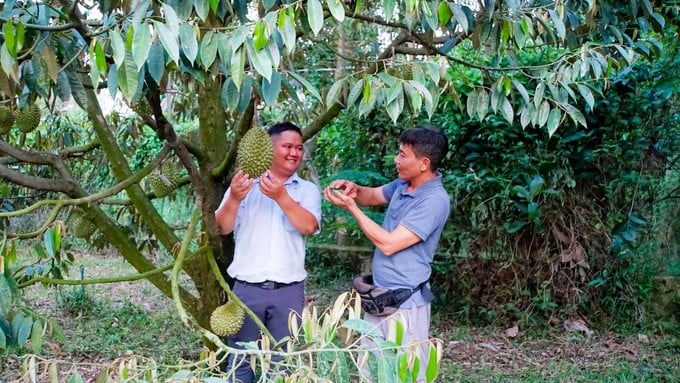
Tay Ninh farmers are increasingly paying attention to durian farming in an organic, sustainable, and eco-friendly direction. Photo: TT.
Mr. Chanh said that Vietnamese durian is now highly appreciated for its quality, and the price of the last crop was more stable than the previous crop year. Chinese partners currently require Vietnamese durian to comply with standards like Thailand's. So, for sustainable export, the prerequisite is to improve product quality.
Mr. Ngo Van Chanh proposed that functional agencies proactively coordinate with cooperatives and purchasing businesses to resolve sustainable output for durian, thereby bringing long-term benefits to farmers.
"Besides, it is necessary to support growing areas that have completed registration documents to be checked early, improve the linkage chain, and resolve durian sources to expand export markets," Mr. Ngo Van Chanh emphasized.
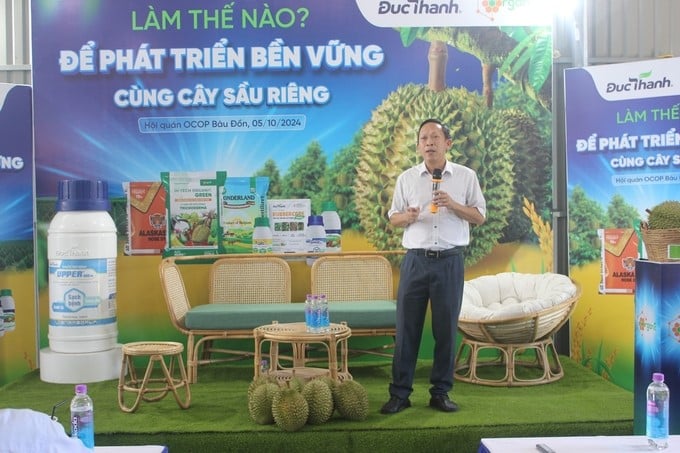
Mr. Nguyen Dinh Xuan, Director of the Department of Agriculture and Rural Development of Tay Ninh Province, shared at the conference. Photo: Tran Trung.
Mr. Nguyen Dinh Xuan, Director of the Department of Agriculture and Rural Development of Tay Ninh Province, said that the province has favorable conditions to develop durian trees, especially Ri6 and Dona durian varieties. The durian crop in Tay Ninh is later than in the Southwest provinces but earlier than in the Central Highlands, so the province can proactively supply to the market at favorable times.
Tay Ninh is also less affected by natural disasters, not experiencing frequent droughts or floods. In particular, the province has a thick arable soil layer, fertile loam and black soil, good drainage, along with a methodically planned irrigation system, very suitable for durian growing.
"Compared to the demand for durian consumption in the province, the durian growing area in Tay Ninh is still not large. Converting ineffective crops to durian farming that brings higher income is a good direction in the agricultural development of the province. However, developing durian trees needs to follow directions, be suitable to the soil, apply science and techniques, and closely link with supply chains to ensure sustainability in terms of both production and consumption," Mr. Xuan said.
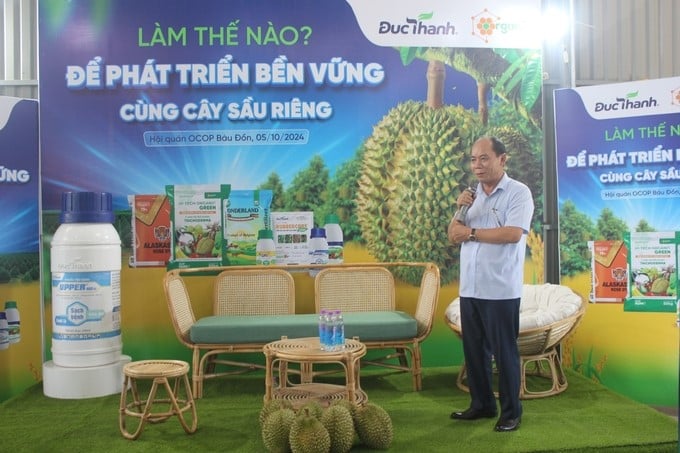
Mr. Le Viet Binh, Deputy Chief of the Office of the Ministry of Agriculture and Rural Development, shared at the conference. Photo: Tran Trung.
At the conference, Mr. Le Viet Binh, Deputy Chief of the Office of the Ministry of Agriculture and Rural Development, informed that recently, the Ministry of Agriculture and Rural Development and the General Administration of Customs of China have officially signed three protocols, including the Protocol on Inspection, Plant Quarantine, and Food Safety for Frozen Durian Exports from Vietnam to China.
"Opening the market for frozen durian not only helps diversify processing processes but also reduces pressure on the harvest crop while creating greater added value for the durian industry. This is an important step forward in agricultural trade relations between Vietnam and China, especially contributing to promoting the development of Vietnam's agricultural sector," Mr. Le Viet Binh emphasized.
Translated by Thu Huyen
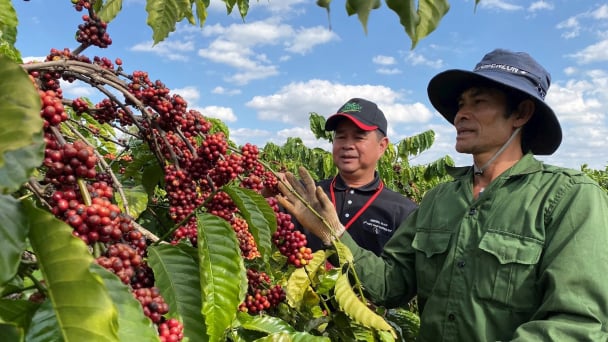
(VAN) Businesses emphasize fairness and equality when integrating social factors into their sustainable development strategies.
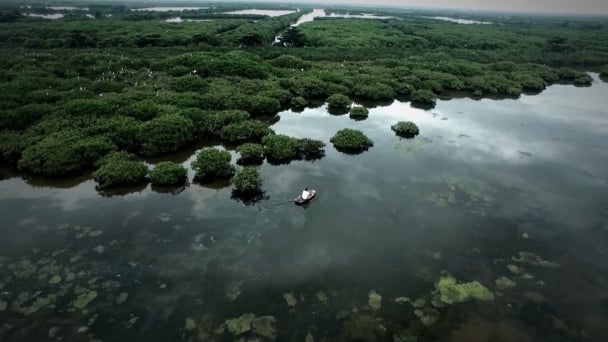
(VAN) French organizations and enterprises propose that Thai Binh province provide potential and long-term cooperation contents related to climate change response and green industrial development.
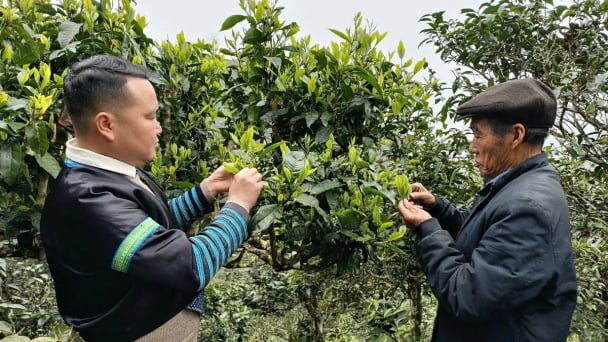
(VAN) Shan Tuyet tea is considered a 'heavenly treasure'. The H'mong people allow the tea to grow naturally, adhering to organic production principles, with the aim of exporting the product.
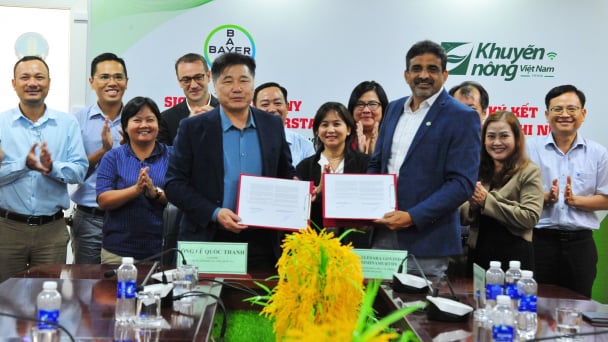
(VAN) Bayer Vietnam and the National Agricultural Extension Center have signed a partnership agreement to expand the development of effective and safe farming models for rice, durian, and coffee.
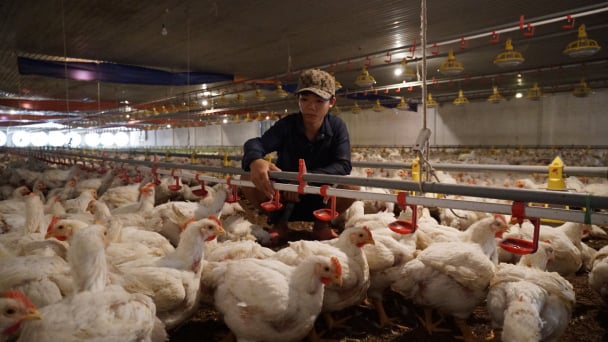
(VAN) Tay Ninh province possesses all the favorable conditions, from natural advantages to geographic location and social harmony, to drive economic development, particularly in attracting investment and advancing modern livestock farming.
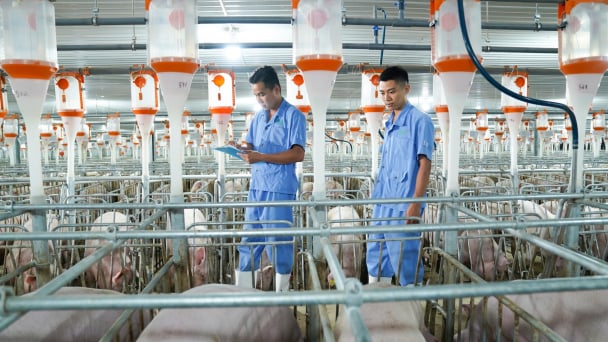
(VAN) Notably, every link in BAF's entire closed livestock value chain Feed - Farm - Food has received international certification.
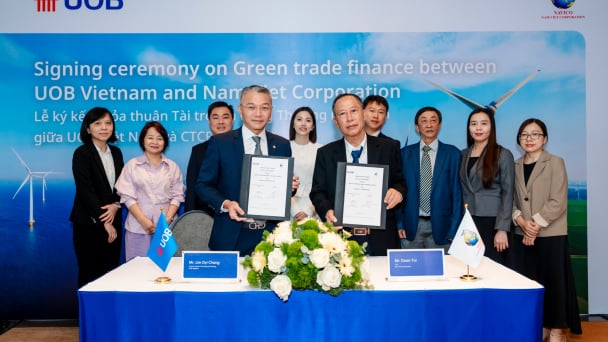
(VAN) UOB Vietnam has recently signed a green credit agreement with NAVICO to develop sustainable aquaculture that meets international standards.